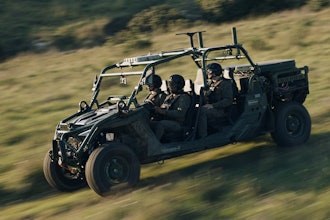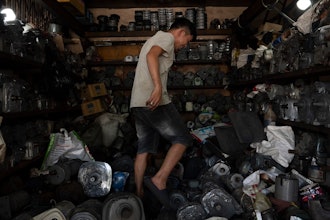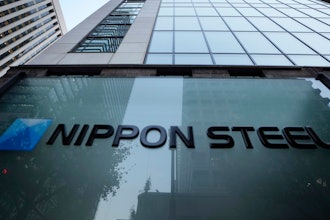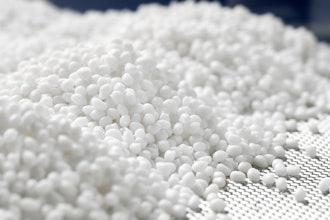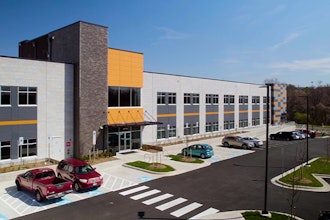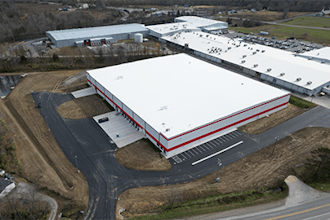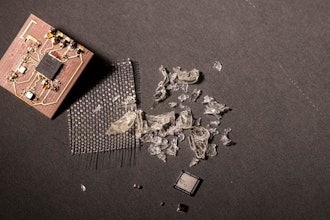ALBANY, Ga. (AP) -- Officers at a Georgia peanut plant took five days to disclose that lab tests found salmonella in some of their products, despite repeated questioning from on-site inspectors rushing to find the source of a deadly national outbreak, a federal investigator testified Thursday.
Food and Drug Administration inspectors arrived at the Peanut Corp. of America plant in rural Blakely on Jan. 9, 2009, after tubs of salmonella-tainted peanut butter were traced to the factory. Now the company's former owner and two others are standing trial in U.S. District Court in a rare instance of corporate officers and workers being prosecuted in a food poisoning case.
Bob Neligan, an FDA food safety investigator, told the jury Thursday the plant's manager told inspectors during their first day at the plant that the only time salmonella had been detected during routine lab tests on the company's products had turned out to be a false positive. The same manager, Samuel Lightsey, changed his story a few days later, he said.
"It was finally on day five that Mr. Lightsey revealed they had had three positives for salmonella, and that would have been in the last year or so," Neligan said. "We had continuously asked that from day one."
By the end of January, after the FDA took the unusual step of issuing Peanut Corp. a mandatory order to turn over two years of records, inspectors found lab tests had confirmed salmonella in 12 lots of ground peanuts, peanut paste and peanut butter produced at the Georgia plant since 2007. He said most companies linked to food-borne illnesses voluntarily "hand over as many records as they can to resolve the issue quickly."
Neligan said other company officers who asked about salmonella before the tests were disclosed included Peanut Corp. owner and president Stewart Parnell and the plant's quality assurance manager, Mary Wilkerson. Parnell has been charged with shipping contaminated food to customers and with covering up positive lab tests for salmonella, as has his brother, food broker Michael Parnell. Stewart Parnell and Wilkerson are also charged with obstruction of justice by withholding information from investigators. Conspiracy and obstruction charges brought against the defendants in a 76-count indictment last year each carry a maximum sentence of 20 years.
The FDA inspection led to the Georgia plant being shut down and Peanut Corp. later went bankrupt. The 2008-09 salmonella outbreak prompted one of the largest food recalls in U.S. history. The Centers for Disease Control and Prevention found that 714 people in 46 states were infected and nine people died — three in Minnesota, two in Ohio, two in Virginia, one in Idaho and one in North Carolina.
Lightsey was also indicted in the salmonella case. He pleaded guilty in May to seven criminal counts after reaching a deal with prosecutors, who plan to call Lightsey as a witness against the Parnell brothers and Wilkerson.
Defense attorneys took aim at Lightsey during their cross-examination of FDA agents Thursday. Ed Tolley, the attorney for Michael Parnell, had food safety inspector Janet Gray confirm that Lightsey was the company officer who initially told investigators the only salmonella test Peanut Corp. had worried about turned out to be a false-positive result.
"An old-fashioned Georgia way of saying that is Mr. Lightsey lied to you when you asked him that question the first time, isn't it?" Tolley asked Gray, who said she agreed with him.
Stewart Parnell's attorney, Tom Bondurant, asked if FDA inspectors felt pressure internally or from Congress to cast blame beyond the plant manager. He cited an email Gray said she received from her supervisor that read: "Was it Lightsey or was it Lightsey under the direction of Stewart Parnell?"
"While you were conducting your inspection, a lot of other people got involved. Congress got involved, didn't they?" Bondurant said. "Wasn't there a lot of external pressure in this inspection that was unlike a lot of inspections you've done?"
Gray said the Peanut Corp. inspection was intense, but said she wasn't pressured to implicate anyone.
The trial in southwest Georgia began a week ago. The judge has said the prosecution case alone could take eight weeks to present.
More from MBTMag.com
Spying Revelations Lead To Encryption Boom
Company To Shut 2 Manufacturing Plants In New York
WTO Upholds 'Rare Earth' Ruling Against China








